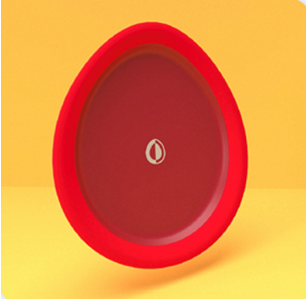Innovative plate design to revolutionise the way we eat
Steven Smith, Director of Bury-based Redfoot Shoes explains how their new MePlate has been designed to reduce a user's appetite using research in food science.
With a strong track record designing and supplying shoes, clothing and homewares, Bury-based Redfoot Shoes were investigating new ways to grow and diversify the business.
Top of director Steven Smith’s list was a range of innovative crockery, scientifically designed to reduce a person’s appetite and help them overcome obesity.
It began a few years ago when my son Tim came across something called the Delbeouf Illusion.
It’s an optical illusion in which one black circle looks bigger than the other, even though they’re exactly the same size.
Academic research had been carried out to see whether the idea could be applied to dining plates, as a way of helping people to diet and eat less; it was something we wanted to explore a bit more, with the help of Lancaster University.

We found out that other factors can influence how people consume food, too.
These include the colour of the plate, its weight and surface texture. Making this link to appetite reduction proved the key driver in the design of the final prototype for MePlate.
So, we approached Manchester Metropolitan University’s (MMU) 3D digital printing hub PrintCity for help around product design and prototyping and started working closely with innovation development manager Martin Rogers to develop a delivery strategy for the product.
Essentially, they gave us a blueprint to work from.
Martin helped bring all the support together. While embedded in the University, he was also a member of the Hub’s Innovation Team and introduced us to fellow advisor Karen Dudley who looked deeper into what we were doing. She worked with us to identify wider needs and develop an Innovation Canvas Report covering key areas for improvement and growth.

Karen also helped us to secure Innovation Vouchers.
The Innovation vouchers are a great idea for companies like us and help SMEs to access expertise and develop new partnerships with universities and research organisations.
Using the funding secured through the vouchers, we created a 3D printed protype of the MePlate and also started working with Haleh Moravej, a senior lecturer in Nutritional Sciences at MMU’s Faculty of Health, Psychology and Social Care.
This enabled us to look further into the psychology of over-eating.
Her team had carried out extensive research into why people over-eat, as well as the psychology of different colours and shapes in relation to homeware. They also created meal plans, with over 100 recipes, that encouraged people to eat less and more healthily.
MePlate is now in production and will be available in the new year.
A whole network of experts has come together to help make it a reality. We knew it was a novel and innovative idea but we also knew it made perfect sense, and to be able to back this up with leading academic research has been invaluable.
I think the whole project represents a real coming together of industry and academia, made possible by grants and funding such as the Innovation Vouchers. They have helped to pay for vital research that is helping bring a new product to market, and safeguard jobs.
We are also working with students from Lancaster University again, who are looking at the best ways to market the product.